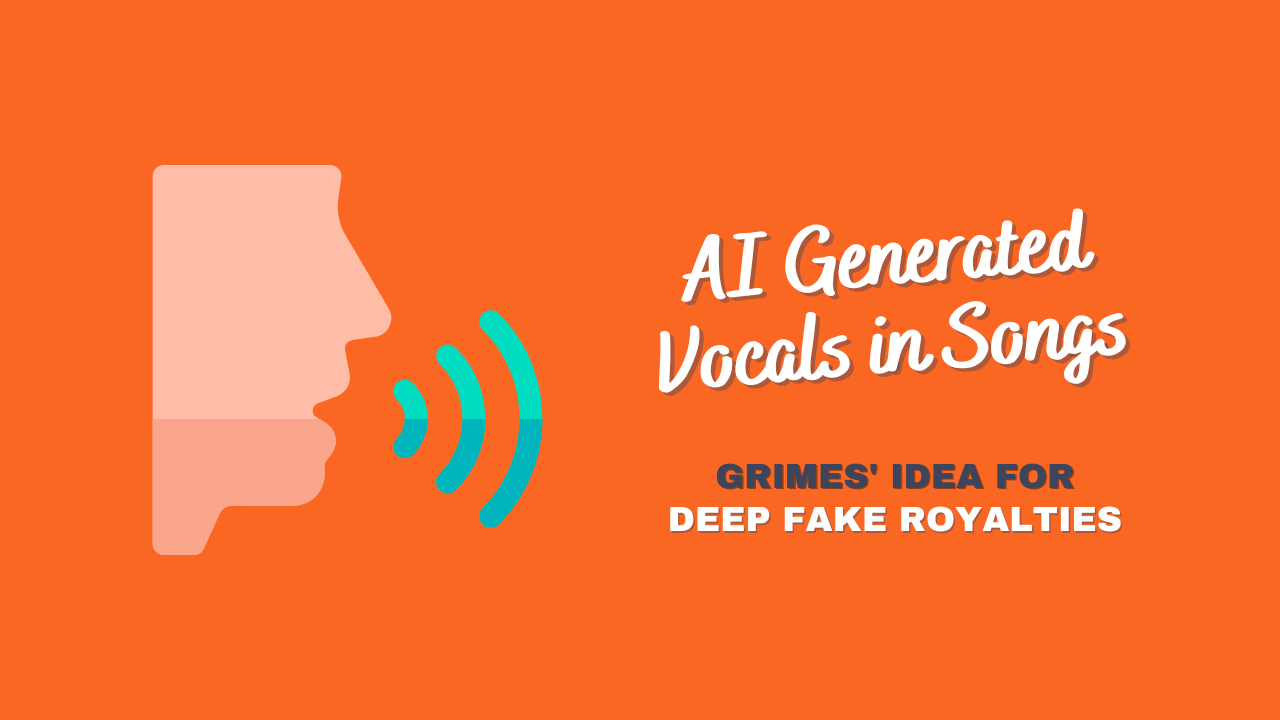Deep Fake Royalties: A different approach to AI vocals, cover songs
The music industry is constantly adapting to new technologies and trends. But with the rapid rise of artificial intelligence and AI-generated vocals and music, the industry is facing a new level of disruption.
by Ashley Di Buduo from Haulix
As we’ve seen, this technology can be used to create convincing fake voices of real people. While this can be a creative way for musicians to experiment with new sounds and styles, it also raises major concerns about ethics, copyright infringement, and authenticity.
Most recently, the AI-generated Drake and The Weeknd track, “Heart on My Sleeve,” spread like wildfire over the internet, leading to mass takedowns. But what happens to the thousands in streaming royalties the track earned? And what do we do when the inevitable next AI-deep fake vocal track goes viral? Issue takedowns over and over while streaming royalties continue to build and be held?
Well, Canadian musician Grimes has a potential solution that could create a new model for the industry.

Grimes recently announced on Twitter that she will allow artists to use her AI-generated voice to make songs, and she will give the creator a 50% split of the royalties. She and her team are also working on a program that will simulate her voice, making it easy for artists to use. Could Grimes’ plan help solve the problem of AI-generated deep-fake vocals? She is “interested in being a Guinea pig” for the process, so time will tell. Ultimately, by partnering with artists like Grimes, AI-generated music could be made with the explicit permission and collaboration of the artist, making it clear that the vocals are not authentic.
By embracing AI and working with other artists to create new music, not only is Grimes changing the way we think about creativity, but also aiming to solve a problem. This could open the door for the industry to view AI-generated vocals as an opportunity instead of a cause for concern. With this model, it could introduce additional income streams, increased artist awareness, and even assist in breaking emerging artists and producers. It remains to be seen how artists and the industry as a whole will respond, but one thing is for sure: the rise of AI-generated music is a trend that’s not going away anytime soon, and the industry needs to find a way to embrace it while also protecting the rights of its artists.